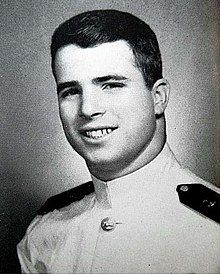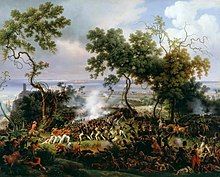Portal:History
The History Portal
History (derived from Ancient Greek ἱστορία (historía) 'inquiry; knowledge acquired by investigation') is the systematic study and documentation of the human past. History is an academic discipline which uses a narrative to describe, examine, question, and analyse past events, and investigate their patterns of cause and effect. Historians debate which narrative best explains an event, as well as the significance of different causes and effects. Historians debate the nature of history as an end in itself, and its usefulness in giving perspective on the problems of the present.
The period of events before the invention of writing systems is considered prehistory. "History" is an umbrella term comprising past events as well as the memory, discovery, collection, organization, presentation, and interpretation of these events. Historians seek knowledge of the past using historical sources such as written documents, oral accounts or traditional oral histories, art and material artefacts, and ecological markers.
Stories common to a particular culture, but not supported by external sources (such as the tales surrounding King Arthur), are usually classified as cultural heritage or legends. History differs from myth in that it is supported by verifiable evidence. However, ancient cultural influences have helped create variant interpretations of the nature of history, which have evolved over the centuries and continue to change today. The modern study of history is wide-ranging, and includes the study of specific regions and certain topical or thematic elements of historical investigation. History is taught as a part of primary and secondary education, and the academic study of history is a major discipline in universities.
Herodotus, a 5th-century BCE Greek historian, is often considered the "father of history", as one of the first historians in the Western tradition, though he has been criticized as the "father of lies". Along with his contemporary Thucydides, he helped form the foundations for the modern study of past events and societies. Their works continue to be read today, and the gap between the culture-focused Herodotus and the military-focused Thucydides remains a point of contention or approach in modern historical writing. In East Asia a state chronicle, the Spring and Autumn Annals, was reputed to date from as early as 722 BCE, though only 2nd-century BCE texts have survived. The title "father of history" has also been attributed, in their respective societies, to Sima Qian, Ibn Khaldun, and Kenneth Dike. (Full article...)
Featured picture
Did you know (auto generated)

- ... that at the age of 28, Mason Morelli became the first player in Vegas Golden Knights franchise history to record two points in their National Hockey League debut game?
- ... that BoysTown was reported as having the largest case of child abuse in Australia's history?
- ... that the Al Qarara Cultural Museum, housed in a former grain silo, contained 6000 years of history?
- ... that a massive smallpox epidemic struck the Pacific Northwest shortly before historical records were kept?
- ... that the bankruptcy of Penn Central in 1970 was the largest in American history at the time?
- ... that the Creamoata Mill, which once produced a now-nonexistent breakfast food, was listed as Gore's only "place of outstanding historical and cultural influence"?
Carlos Castillo Armas (locally ['kaɾlos kas'tiʝo 'aɾmas]; 4 November 1914 – 26 July 1957) was a Guatemalan military officer and politician who was the 28th president of Guatemala, serving from 1954 to 1957 after taking power in a coup d'état. A member of the right-wing National Liberation Movement (MLN) party, his authoritarian government was closely allied with the United States.
Born to a planter, out of wedlock, Castillo Armas was educated at Guatemala's military academy. A protégé of Colonel Francisco Javier Arana, he joined Arana's forces during the 1944 uprising against President Federico Ponce Vaides. This began the Guatemalan Revolution and the introduction of representative democracy to the country. Castillo Armas joined the General Staff and became director of the military academy. Arana and Castillo Armas opposed the newly elected government of Juan José Arévalo; after Arana's failed 1949 coup, Castillo Armas went into exile in Honduras. Seeking support for another revolt, he came to the attention of the US Central Intelligence Agency (CIA). In 1950 he launched a failed assault on Guatemala City, before escaping back to Honduras. Influenced by lobbying by the United Fruit Company and Cold War fears of communism, in 1952 the US government of President Harry Truman authorized Operation PBFortune, a plot to overthrow Arévalo's successor, President Jacobo Árbenz. Castillo Armas was to lead the coup, but the plan was abandoned before being revived in a new form by US President Dwight D. Eisenhower in 1953. (Full article...)
On this day
- 1449 – Four years before the fall of Constantinople, Constantine XI Palaiologos (pictured) assumed the throne as the last Byzantine emperor.
- 1725 – J. S. Bach led the first performance of Liebster Immanuel, Herzog der Frommen, a chorale cantata for Epiphany.
- 1912 – German geophysicist Alfred Wegener presented his theory of continental drift, the precursor of plate tectonics, to the German Geological Society.
- 1953 – The inaugural Asian Socialist Conference, an organisation of socialist political parties, opened in Rangoon with 177 delegates, observers and fraternal guests.
- 2014 – The first episode of the documentary series Benefits Street aired on Channel 4, prompting discussion in the United Kingdom about welfare dependency.
- Baltasar Hidalgo de Cisneros (b. 1756)
- Earl Scruggs (b. 1924)
- Babrak Karmal (b. 1929)
- Sybil Plumlee (d. 2012)
Selected quote
Our march to freedom is irreversible. We must not allow fear to stand in our way.
— Nelson Mandela, 1st South African President
Related portals
More Did you know...
- ... that the underground Fortress of Mimoyecques (pictured) was built by Nazi Germany to bombard London with 10 shells a minute using the V-3 supergun?
- ... that Howard P. Perry was the first African American recruit in the United States Marine Corps?
- ... that the Chester city walls form the most complete circuit of Roman and medieval defensive town walls in Britain?
- ... that China's first female director was adopted by the first Premier of the People's Republic of China?
- ... that the Medieval Merchant's House in Southampton was being used as a brothel when bomb damage during the Blitz revealed the building's important medieval architecture?
- ... that the Sumerian "river of paradise", the Hubur, derived partly from real geography before becoming a demonic fantasy?
- ... that Bill Foley's photograph "The Last Smile" shows Anwar Sadat only moments before his assassination?
- ... that the 1911 Sarez earthquake triggered a huge landslide, forming the tallest dam in the world?
Topics
Categories

History • By period • By region • By topic • By ethnic group • Historiography • Archaeology • Books • Maps • Images • Magazines • Organizations • Fictional • Museums • Pseudohistory • Stubs • Timelines • Chronology • People • Wikipedia historians
WikiProjects
![]() WikiProject History •
Ancient Near East • Australian History • Classical Greece and Rome • Dacia • Former countries • History of Canada • Chinese history • European history • Heraldry and vexillology • Indian history • Jewish history • Medieval Scotland • Mesoamerica • Military history • Middle Ages • History of Science
WikiProject History •
Ancient Near East • Australian History • Classical Greece and Rome • Dacia • Former countries • History of Canada • Chinese history • European history • Heraldry and vexillology • Indian history • Jewish history • Medieval Scotland • Mesoamerica • Military history • Middle Ages • History of Science
WikiProject Time • Days of the Year • Years
WikiProject Biography • Composers • Political figures • Saints • United States Presidents
Things you can do
 |
Here are some tasks awaiting attention:
|
Associated Wikimedia
The following Wikimedia Foundation sister projects provide more on this subject:
-
Commons
Free media repository -
Wikibooks
Free textbooks and manuals -
Wikidata
Free knowledge base -
Wikinews
Free-content news -
Wikiquote
Collection of quotations -
Wikisource
Free-content library -
Wikiversity
Free learning tools -
Wiktionary
Dictionary and thesaurus























































